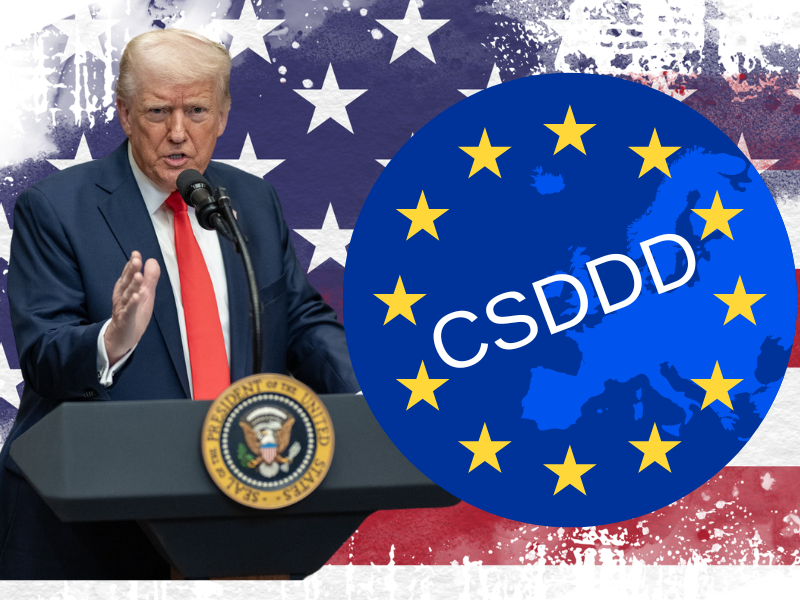Testimony before the Albany County Legislature
Lindsey Stroud, State Government Relations Manager
The Heartland Institute
July 8, 2019
Chairwoman Joyce and members of the Legislature, thank you for taking the time today to discuss the issue of banning sales of electronic cigarettes and flavored tobacco products including menthol cigarettes and flavored cigars. The Heartland Institute is a 34-year-old independent, national, nonprofit organization whose mission is to discover, develop, and promote free-market solutions to social and economic problems. Heartland is headquartered in Illinois and focuses on providing national, state, and local elected officials with reliable and timely research and analyses on important policy issues. Heartland would like to submit the following testimony regarding the proposed ban.
Many localities and states have proposed banning flavored tobacco products altogether in an effort to combat what the media and some public health officials have declared is a “youth vaping epidemic.”
Although addressing policies that could help to deter youth consumption of tobacco products are laudable, policymakers should refrain from proposals that would restrict adult access to tobacco harm reduction products. Moreover, localities aiming to further restrict adult access to flavored tobacco products such as flavored cigars and menthol cigarettes are impeding on the choices of adults.
E-cigarettes have emerged as an effective smoking cessation tool, with a recent study in the New England Journal of Medicine finding their use to be “twice as effective” as nicotine replacement therapy (i.e. gums and lozenges), in helping smokers quit.[1] Since their introduction to the U.S. market, an estimated three million American adults have used these products to give up combustible cigarettes. [2]
Combustible tobacco cigarettes contain 600 ingredients and when burned, emit an estimated 7,000 chemicals. Existing research indicates that it is the smoke created by burning cigarettes that produces the most harm. Whereas, e-cigarettes generally contain five ingredients and when used, emit a vapor that is significantly less harmful than combustible cigarettes.[3]
These findings have been noted by numerous public health groups. Most recently, the American Cancer Society noted in June 2019 “that e-cigarette use is likely to be significantly less harmful for adults than smoking regular cigarettes.”[4]
These findings are similar to other public health agencies’ conclusions. In 2015, Public Health England, a leading health agency in the United Kingdom and similar to the U.S. Food and Drug Administration found “that using [e-cigarettes are] around 95% safer than smoking,” and that their use “could help reducing smoking related disease, death and health inequalities.”[5] In 2018, the agency reiterated their findings, finding vaping to be “at least 95% less harmful than smoking.”[6]
In 2016, the Royal College of Physicians found the use of e-cigarettes and vaping devices “unlikely to exceed 5% of the risk of harm from smoking tobacco.”[7] In 2018, the National Academies of Sciences, Engineering and Medicine concluded e-cigarette use results in “reduced short-term adverse health outcomes in several organs.”[8]
The use of flavors in e-cigarettes is vital for these products’ success with many former smokers crediting flavors for their ability to give up combustible cigarettes.
A 2013 internet study concluded that flavors in e-cigarettes “appear to contribute to both perceived pleaser and the effort to reduce cigarette consumption or quit smoking.”[9] A 2015 online survey conducted by the Consumer Advocates for Smoke Free Alternatives Association (CASAA) examined 27,343 Americans over the age of 18. Seventy-two percent of the respondents “credited tasty flavors with helping them give up tobacco.”[10] Of the respondents that were still smoking, “53% say interesting flavors are helping move them toward quitting.”
A 2018 survey of nearly 70,000 American adult vapers “found flavors play a vital role in the use of electronic cigarettes and vaping devices.”[11] Moreover, 83.2 percent and 72.3 percent of survey respondents reported vaping fruit and dessert flavors, respectively, “at least some of the time.”[12]
A 2017 study discovered older adults “use of an e-cigarette flavored with something other than tobacco (69.3%) was … significantly higher than the same at initiation (44.1%).”[13] Thus, e-cigarette users often first consume tobacco flavored e-liquids and products and then transition to other flavors, helping aid their cessation of combustible cigarettes.
Another 2017 study examined the impact of a flavor ban in electronic cigarettes and vaping devices. The authors concluded banning flavors “would result in increased choice of combustible cigarettes,” and they said they expect e-cigarette use to decline by approximately 10 percent if flavors are banned.[14]Additionally, a 2018 “systematic review of research examining consumer preference” for flavors concluded adults “in general also preferred sweet flavors.”[15]
Beyond e-cigarettes, policymakers’ fears about the role of menthol and flavorings in cigarettes and cigars are overblown and banning these products will likely lead to black markets.
Data from the National Health Interview Survey (NHIS) finds nearly a third of all American adult smokers smoke menthol cigarettes. In a 2015 NHIS survey, “of the 36.5 million American adult smokers, about 10.7 million reported that they smoked menthol cigarettes,” and white menthol smokers “far outnumbered” the African American menthol smokers.[16]
Although lawmakers believe banning menthol cigarettes will deter persons from smoking those, such a ban will likely lead to black markets. A 2012 study featured in the journal Addiction found a quarter of menthol smokers surveyed indicated they would find a way to purchase, even illegally, menthol cigarettes should a menthol ban go into place.[17] Further, there is little evidence that smokers would actually quit under a menthol ban. A 2015 study in Nicotine & Tobacco Research found only 28 percent of menthol smokers would give up cigarettes if menthol cigarettes were banned.[18]
Alarmingly, lawmakers in Albany are attempting to restrict access to products that can help adults quit smoking. However, they are allowing the same adults to have unlimited access to harmful combustible tobacco products.
A 2012 survey by Euromonitor International found that “most people, by far, buy their cigarettes at convenience stores,” with approximately 63.4 percent of respondents purchasing cigarettes at these retail locations. On the other hand, only 21.1 percent of respondents claimed to purchase cigarettes at “tobacco specialists,” or the age restricted stores today’s legislation would force products such as e-cigarettes and flavored tobacco products to be sold at.
Rather than impeding on adult access to tobacco products, policymakers should utilize existing funding from tobacco moneys on programs that can help curb tobacco use. Although not county specific, the State of New York spends very little on tobacco prevention. In 2019, New York received an estimated $2.0371 billion in tobacco settlement payments and taxes, yet only allocated $39.3 million, or 1 percent, on tobacco education and prevention programs.[19]
It is disingenuous that lawmakers would purport to protect public health yet restrict access to safer products. Rather than restricting access to tobacco harm reduction products and flavored tobacco products, lawmakers should encourage the use of e-cigarettes and earmark adequate funding for smoking education and prevention programs.
Thank you for your time today.
For more information about The Heartland Institute’s work, please visit our website at www.heartland.org, or contact Lindsey Stroud by phone at 757/354-8170 or by email at [email protected].
[1] Lindsey Stroud, “Randomized Trial Finds E-Cigarettes are More Effective Smoking Cessation Tool Than Nicotine Replacement Therapy,” Research & Commentary, The Heartland Institute, February 11, 2019, https://heartland.org/publications-resources/publications/research–commentary-randomized-trial-finds-e-cigarettes-are-more-effective-smoking-cessation-tool-than-nicotine-replacement-therapy.
[2] M. Mirbolouk et al., “Prevalence and Distribution of E-Cigarette Use Among U.S. Adults: Behavioral Risk Factor Surveillance System,” Annals of Internal Medicine, August 28, 2016, https://annals.org/aim/article-abstract/2698112/prevalence-distribution-e-cigarette-use-among-u-s-adults-behavioral.
[3] Brad Rodu et al., “Vaping, E-Cigarettes, and Public Policy Toward Alternatives to Smoking,” The Heartland Institute, February 20, 2017, https://heartland.org/publications-resources/publications/vaping-e-cigarettes-and-public-policy-toward-alternatives-to-smoking.
[4] American Cancer Society, “What Do We Know About E-Cigarettes?” June 19, 2019, https://www.cancer.org/cancer/cancer-causes/tobacco-and-cancer/e-cigarettes.html.
[5] A. McNeill et al., “E-cigarettes: an evidence update,” Public Health England, August, 2015, https://assets.publishing.service.gov.uk/government/uploads/system/uploads/attachment_data/file/733022/Ecigarettes_an_evidence_update_A_report_commissioned_by_Public_Health_England_FINAL.pdf.
[6] A. McNeill et al., “Evidence review of e-cigarettes and heated tobacco products 2018,” Public Health England, February 2018, https://assets.publishing.service.gov.uk/government/uploads/system/uploads/attachment_data/file/684963/Evidence_review_of_e-cigarettes_and_heated_tobacco_products_2018.pdf.
[7] Royal College of Physicians, Nicotine without Smoke: Tobacco Harm Reduction, April, 2016, https://www.rcplondon.ac.uk/projects/outputs/nicotine-without-smoke-tobacco-harm-reduction-0.
[8] Committee on the Review of the Health Effects of Electronic Nicotine Delivery Systems, “Public Health Consequences of E-Cigarettes,” The National Academies of Science, Engineering, and Medicine, 2018, https://www.nap.edu/catalog/24952/public-health-consequences-of-e-cigarettes.
[9] Konstantinos Farsalinos et al., “Impact of Flavour Variability on Electronic Cigarette Use Experience: An Internet Survey,” International Journal of Environmental Research and Public Health, December 17, 2013, https://www.mdpi.com/1660-4601/10/12/7272/htm.
[10] Vape Ranks, “Large Survey Finds E-Cigarettes Do Help Smokers Quit,” January 12, 2016, https://vaperanks.com/large-survey-finds-e-cigarettes-do-help-smokers-quit/.
[11] Lindsey Stroud, “Research & Commentary: Largest Vaping Survey Finds Flavors Play Important Role in Tobacco Harm Reduction,” Research & Commentary, The Heartland Institute, October 2, 2018, https://heartland.org/publications-resources/publications/research–commentary-largest-vaping-survey-finds-flavors-play-important-role-in-tobacco-harm-reduction.
[12] Ali Anderson, “Ex Smokers Prefer Fruity E-Liquids Says Doctor’s FDA Survey,” Vaping, August 14, 2018, https://vaping.com/blog/news/ex-smokers-prefer-fruity-e-liquids-says-doctors-fda-survey/.
[13] M.B. Harrell et al., “Flavored e-cigarette use: Characterizing youth, young adult, and adult users,” Preventative Medicine Reports, March 2017, pp. 33-40, https://www.sciencedirect.com/science/article/pii/S2211335516301346.
[14] John Buckell, Joachim Marti, and Jody L. Sindelar, “Should Flavors Be Banned in E-Cigarettes? Evidence on Adult Smokers and Recent Quitters from a Discrete Choice Experiment,” National Bureau of Economic Research, September 2017, http://www.nber.org/papers/w23865.pdf.
[15] Samane Zare et al., “A systematic review of consumer preference for e-cigarette attributes: Flavor, nicotine strength, and type,” PLoS ONE 13(3): e0194145. https://doi.org/10.1371/journal.pone.0194145.
[16] Brad Rodu, “Who Smokes Menthol Cigarettes?” Tobacco Truth, December 4, 2018, https://rodutobaccotruth.blogspot.com/2018/12/who-smokes-menthol-cigarettes.html.
[17] RJ O’Connor et al., “What would menthol smokers do if menthol in cigarettes were banned?” Addiction, April 4, 2012, https://www.ncbi.nlm.nih.gov/pmc/articles/PMC3370153/.
[18] Olivia A. Wackowski, PhD, MPH, et al., “Switching to E-Cigarettes in the Event of a Menthol Cigarette Ban,” Nicotine & Tobacco Research, January 29, 2015, https://www.researchgate.net/publication/271592485_Switching_to_E-Cigarettes_in_the_Event_of_a_Menthol_Cigarette_Ban.
[19] Tobacco use in New York, Truth Initiative, June 28, 2019, https://truthinitiative.org/research-resources/smoking-region/tobacco-use-new-york-2019.




